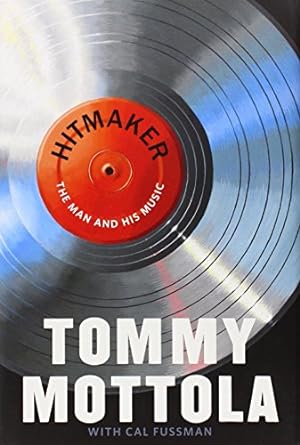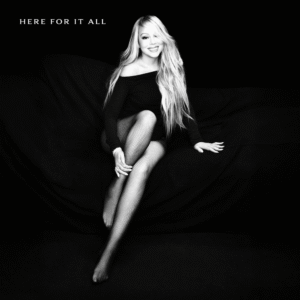
The Vision
As Mariah’s album neared completion, Tommy Mottola delved deeper into the music. Narada had produced the first single, “Vision of Love,” and they had their third hit single figured out (“Someday”), but they were still missing the second big ballad that Tommy was hoping for. As he listened to the songs produced by Narada, he grew increasingly perceptive of an additional factor in the music, a hidden ingredient that he couldn’t quite pinpoint. Eventually, he discovered the answer: the keyboard player, Walter Afanasieff.

Intrigued, Tommy Mottola called Walter Afanasieff, a talented keyboard player helping Narada with arrangements. Tommy heard nothing but great things about him from colleagues and even those from Whitney Houston’s group. Although Walter was quiet, he was confident he could do great things with him. When they met, Tommy had no idea that Walter was born in Brazil to Russian parents, with a classical music background. Only later would Tommy realize Walter’s potential, offering him an exclusive production deal. He happily accepted.
Tommy Mottola had an urgent job for Walter Afanasieff: collaborate with Mariah on the second single ballad for Mariah’s debut album within a week. Both were excited as their chemistry was great from the beginning. It was a critical piece of the puzzle, especially since they were already up against the clock. They’d done a promotional tour showcasing Mariah’s talents in nine cities with a renowned R&B piano player, winning raves from retailers. There was no time for wasted gimmicks or backdrops. They needed that ballad. The distribution division was putting all their efforts on making Mariah’s release a priority for Grammy nominations.
After some adjustments, Walter Afanasieff and Mariah Carey were ready to record “Love Takes Time.” Tommy Mottola knew they had a hit, and the two had only two days to finish recording it. After the finishing touches, the song was ready to be shipped to the pressing plant. Next up was the Arsenio Hall Show. Tommy got the green light for Mariah’s first public appearance after sending Arsenio the album. But Mariah was still shy – even though she had wowed retailers and radio personalities, she was still an unknown face to the mass public. But Tommy was ready to take the risk.
Tommy Mottola observed the public response to Mariah’s performances, which was a resounding success. Her “America the Beautiful” performance at the NBA Finals stunned the crowd, and the announcer declared, “The Palace now has a Queen.”
The album sold millions, and Tommy felt like he was walking on air. He tried to keep Mariah balanced and focused, even telling her to “keep her feet on the ground.” However, he knew that after the first round of publicity, there would be a lot of work to do in the recording studio. To avoid a sophomore slump and stay relevant with the public, Tommy had a plan – to release the second album as fast as they could.
The Success Story Begins
Initially, Tommy was wary of being seen in public while his divorce was being settled. Once it was finalized, Tommy Mottola accompanied and watched as Mariah Carey’s name was called not once, but twice, at the Grammys. Winning Best New Artist and Best Female Pop Vocal for “Vision of Love” was an extraordinary achievement, and he’d made sure that the fairy tale would continue. As Mariah stepped away from the podium with her Grammy trophies in hand, they knew there would be no sophomore jinx. Plans were in place to avoid it, even before the thought of it even crossed their minds.
Tommy Mottola watched in amazement as all four singles from Mariah Carey’s debut album shot to number one on the Billboard Hot 100. It was unprecedented, and they were moving quickly to release the first single from her second album, Emotions. Fans wouldn’t realize it was from a new album until they were already hooked on the song, and they’d be hungry to buy Emotions. Just like Elvis Presley in his heyday. To this day, Mariah holds the record for the most consecutive number one singles, and she has more than any other solo artist, including Elvis. Tommy had learned from the best.

Tommy Mottola wondered how his therapist would react to Mariah Carey thanking both God and Tommy for her success during the Grammy speech. While his therapist may have been right about Tommy being in denial, it was undeniable that Mariah’s success was unprecedented and a testament to his instincts. Tommy had also found comfort in seeing the bond between Gloria and Emilio Estefan, and the connection he witnessed between Celine Dion and Rene Angeline. Despite their relationship being kept quiet when he first met them, their chemistry was palpable. Music was a unifying force.
Tommy Mottola had perfectly positioned Mariah Carey for success. Her soulful essence and pop hits were reminiscent of Motown’s black artists, creating a blend of sounds that would take her to new heights. Her debut on Arsenio, the 30 million album sales, and her two Grammys gave her an incredible start. The release of her single “Emotions” ahead of time raised expectations and allowed her to avoid the sophomore jinx.
Tommy Mottola encouraged Mariah Carey to stay in the studio a little longer after the release of her Emotions album to document her creative energy and build a rock-solid foundation for her career. He explained that having such a foundation would give Mariah the opportunity to become an icon like Barbra Streisand, allowing her to diversify her music and attract a wider audience. Tommy’s goal was to give Mariah the foundation and freedom to build a successful career that allowed her to pursue all of her musical passions and reach new heights.
Tommy understood Mariah Carey’s desire for time to celebrate her success and recognize her achievements. He understood the difficulties of a grueling workload, perfectionism in the studio, and relentless dedication to her music. He had also seen many artists’ lives and careers unravel due to instant success, and he didn’t want that to happen to Mariah. He respected her and her dreams, but he also understood the importance of being grounded and having a support system. He knew that history repeated itself, and he wanted to ensure that Mariah had what she needed to avoid becoming another victim of delusion and overwhelming success.

Tommy encouraged Mariah Carey to remain focused on the big picture and put off celebrating her success for just a little while. However, this began to form tiny cracks in their relationship. Despite these cracks, Tommy continued to support Mariah and provided her with the sense of stability, grounding, financial security, love, and care that she had been lacking for so much of her life. Mariah had suffered the effects of discrimination due to her biracial parents, and as a child, she was told by her teacher that her picture of them was wrong. These traumatic experiences left Mariah with scars and often fending for herself.
Feeling villainized by the press, he has been described as a Svengali in the media for his supposed control over Mariah Carey. However, he insists that the accusations are “bullshit.” He clarifies that he didn’t chain Mariah to the studio or coerce her into selling millions of albums. He was, in fact, giving her all of his knowledge, and loving her but he now acknowledges that everyone has a different perspective of the events, including himself.
Tommy adds that he provided Mariah Carey with the love, warmth, and home-cooked meals in their relationship that he had received from his parents growing up. Mariah reciprocally made his parents feel welcome, creating a loving family environment. Even though his parents didn’t fully understand the nature of their relationship, they welcomed Mariah with open arms and she appreciated it. Mariah soaked up all the love and warmth she could and reciprocated it. Nobody, including Mariah, would ever say that she didn’t appreciate their relationship at that time.
He takes responsibility for becoming involved with Mariah Carey, acknowledging that it was inappropriate. Although he points out that there have been successful relationships with age gaps, such as his with Thalia or Celine Dion and René, but Tommy regrets any discomfort or pain his good intentions caused Mariah, and particularly for the scars it caused his two oldest children. He accentuates, however, that it was Mariah who asked him to marry her and that he went in with a good heart…





